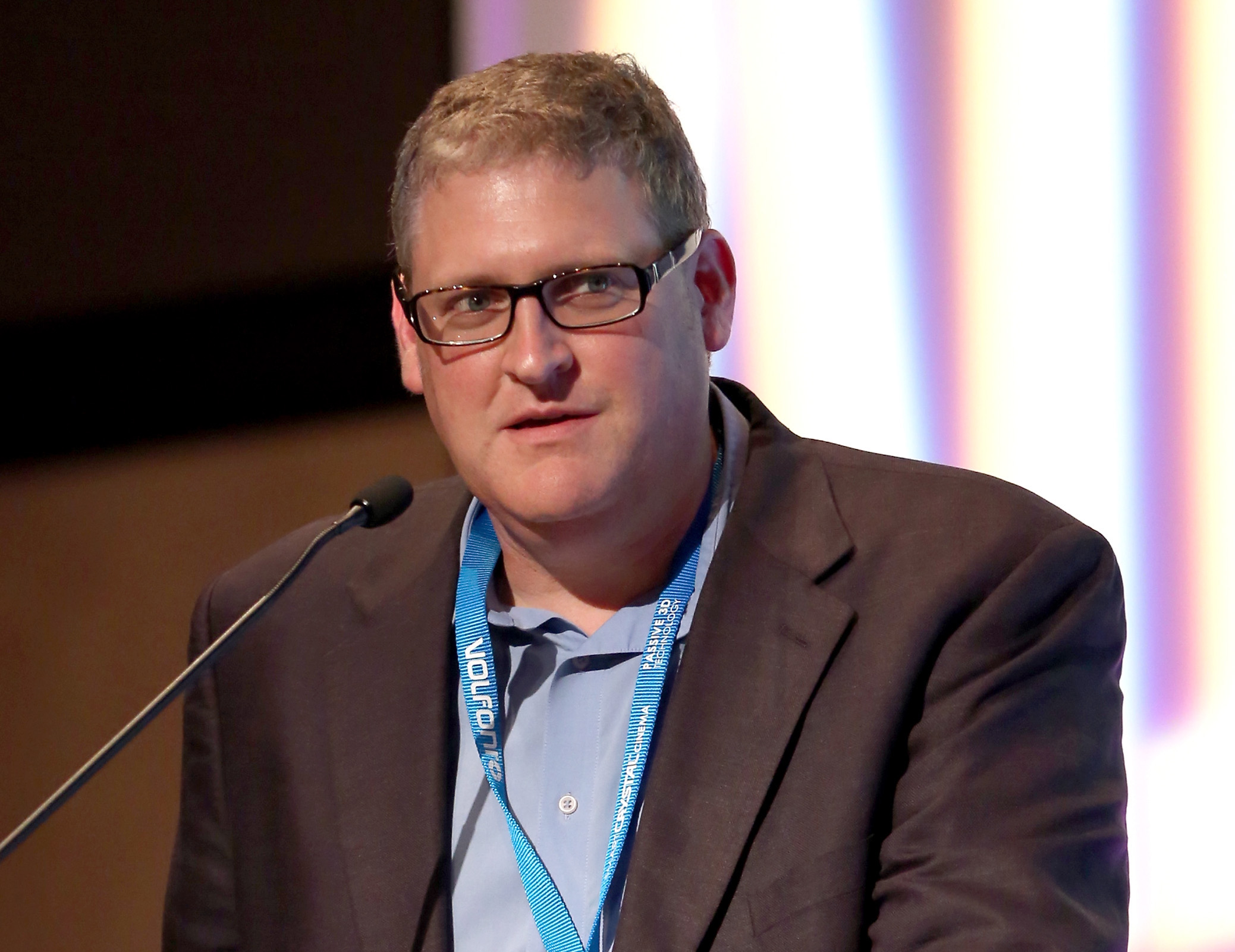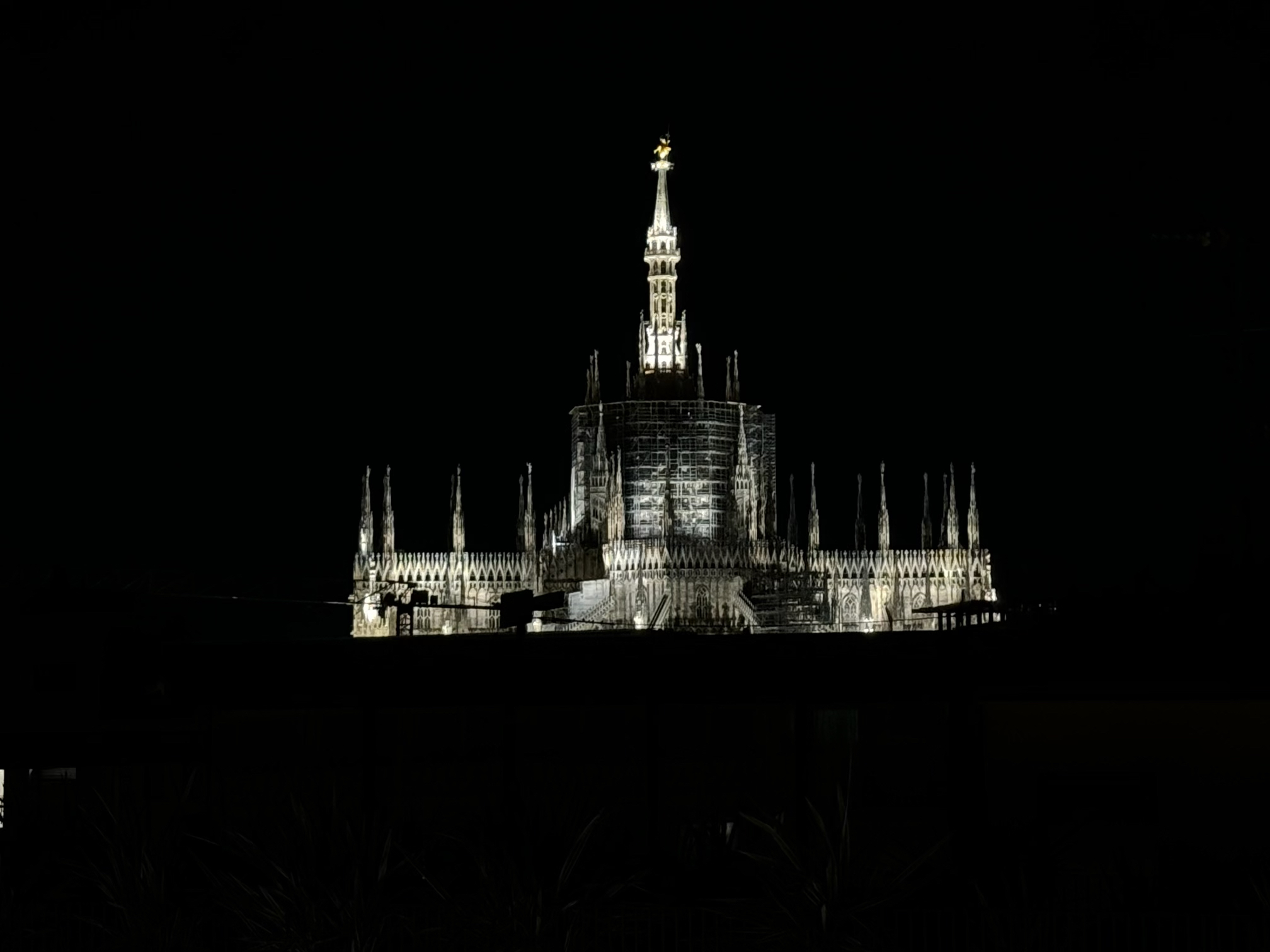Next Text: Showcasing the Brilliance of David Zaslav?
Our weekly back-and-forth also looks at the big Disney-DirecTV deal, Synamedia's 'Senza' cloud-based streaming dongle ... and the terrifying Big Ten fate of the once-proud UCLA football program

The smarter way to stay on top of the streaming and OTT industry. Sign up below.
You are now subscribed
Your newsletter sign-up was successful
Every Sunday, Daniel Frankel and David Bloom ruminate on the state of technology/media/telecom in this space. You can also catch up with their weekly "Next Text" column on LinkedIn. And starting October 6, you can read it every Sunday on our new "Next TMT" platform.
DANIEL FRANKEL: Well, David, we failed to meet the, er, bar, on one of your Next TV Summit declarations this past week: to find a real “Manhattan” in Manhattan. As you explained it, the legitimacy rests in the Maraschino, which wasn’t up to snuff at our Madison Avenue establishment of choice. We still managed to get them down. And it was a surprisingly spry conference, given that it was being hosted by a bunch of sad folks about to be put out on the street by robots. As I’ve mentioned before, I don't think our conference producer has ever read this column ... or the digital publication we built together that will house it for these next few last weeks ... as Next TV gets set to be reformatted and "focused on high-impact initiatives," sans original content. And when it came to finding someone to interview our morning keynote session with esteemed Wedbush Securities analyst Michael Pachter, our producer chose to go outside of our news organization. (Maybe he'll like the robots better?)
As for Pachter, he accused Netflix of "pulling the wool over the eyes" of the media giants. I’ll admit that his keynote session was a highlight of our multi-day "TV Week" event, but I still don’t understand the antipathy guys like Pachter have for Netflix. I mean, this is a Wall Street guy. And Netflix's Q2 top-line seems to be, at least to me, what winning looks like. But as our producer might suspect, what do I know.
DAVID BLOOM: Yes, that was a disappointing attempt by a Manhattan bar to make a credible Manhattan cocktail. Fortunately, on my last afternoon in Manhattan this week, my brilliant spouse suggested we tuck around the corner for a leisurely late lunch at Michael’s, long the watering hole for major publishing executives with access to major expense accounts. We even chatted with founder Michael McCarty about his Santa Monica outpost, mutual friends, and chef/alumna Nancy Silverton, who has a celebrated Umbrian home near our planned Italian destination. And Michael's served an authentic Manhattan, with Michter’s rye, up, topped with a perfect Luxardo cherry, not one of those Defcon-red maraschino travesties that pretenders use.
Now, for the real cherry. The esteemed Pachter reliably tosses a few conversational grenades, deeply appreciated during a conference keynote like the Next TV Summit. But his Netflix antipathies, while well known, aren’t his alone. The share price has jumped 60% in the past year, and lots of people still suspect the company is floating ever upward on a Ponzi scheme of other companies’ content, endless price hikes, inattentive subscribers, and incompetent competitors. Morningstar rates Netflix two stars (out of five), because the analyst’s “fair value” estimate of $500 a share is nearly $200 less than Netflix’s late Friday price. Basically, Morningstar believes the market is wildly overvaluing the company, again, given the revenue it generates and its “narrow” economic moat. Then again, the second half of season 4 of Emily in Paris, with its sophisticated buy-what-you-see product placements, just debuted, so let the cash rain down like the strip joint Scores on Saturday night.
We should dive into those competitors, though. Warner Bros. Discovery shares jumped almost 20% this week (to a still tiny $8.45 apiece) after settling Charter carriage negotiations months early.
The smarter way to stay on top of the streaming and OTT industry. Sign up below.
CEO David Zaslav also told an investor conference that the company will add 6 million subscribers this quarter, thanks to its global streaming rollout. The Charter arrangement resembles last year’s Disney deal, and likely protects WBD's flank from future painful cuts it can’t really afford right now. The real fight, though, comes in several months, when grandmaster chess player Brian Roberts whacks WBD cable channels that no longer have the NBA rights package that Comcast just swiped. That’s gonna be fun.
FRANKEL: So Brian Roberts gets to cut Zaslav's rate after poaching the NBA. That's rich. I know we were out and about up until our bedtime in NYC Tuesday, but did you happen to catch the debate? Drew a M*A*S*H-finale-esque 67 million viewers ... across all platforms, according to Nielsen. And I gotta say, it was the biggest beatdown I've witnessed since some of those early Tyson fights. Don't know how anyone -- MAGA or otherwise -- can objectively look at this and not see a whooping, regardless of your conspiratorial view on the Vice President's alleged Bluetooth earrings. And I thought ABC did a credible job of not letting anybody lie. I mean, that ridiculous "They're eating the dogs!" declaration could go down in infamy with Nixon's flop sweat in 1960 and George Bush Sr. checking his watch in '92.
BLOOM: As a former long-time political reporter, I’m always intrigued by debate post-game spin parties, which start before the on-air performance wraps up, and play out for days afterward. Rupert Murdoch’s New York Post led the way in complaining about the ABC moderators, who actually fact-checked Der Trump’s wilder conspiracy theories/internet fever dreams. I mean, whoever expected a journalism organization to do that, especially one in ABC that absolutely dominates ratings for all the network newscasts and all the 24-hour news channels, including the sort-of journalism organization that paid out $787 million for Making Stuff Up about the Orange One's election conspiracy theories/fever dreams.
But as always, remember that what we, and hundreds of millions of others, think matters little in this debate, and election. It will be decided by a thin slice of a couple of million people in seven battleground states who still can’t make up their minds. I think most of those goofballs are still waiting in line at the Golden Corral, hemming and hawing between the chicken and the pork chops. They're likely to miss the election altogether. I mean, the choices! Makes me want to get to the bottom of this Manhattan.
The other intriguing question is whether the fact-checking causes problems for Disney entertainment exec Dana Walden, seen as the leader to succeed Bob Iger, with whom she is close and with whom she reportedly watched the debate. Walden oversees Disney’s TV operations, including ABC News. She’s also been a close friend of Kamala Harris for three decades. Thank goodness Walden made so much money for Murdoch when she ran TV at Fox, otherwise we’d be hearing a lot more about this.

FRANKEL: While we were downing frilly cocktails and blathering on about the election, it appears DirecTV and Disney have settled their big program licensing kerfuffle.
Also read: Disney, DirecTV Reach Agreement To End Blackout
DirecTV is claiming it got the demands it sought: The ability to create genre-based programming packages around "sports" and "kids," as well as the wherewithal to package the DTC "ESPN Flagship" when it comes out next year. A source close to DirecTV told me this week that operator has around 11 million subscribers left across its multiple linear and streaming platforms -- that's about 3.5 million fewer than when it left AT&T's womb in the summer of 2021. DirecTV CMO Vince Torres told investors this week that the company will "claw back" some of the customers it lost amid the Disney blackout over the past few weeks. I don't see how.

BLOOM: How dare they do business on a weekend while we're off enjoying ourselves! I, personally, am outraged. But between this week’s DTV/DIS and CHTR/WBD contracts (and previous Charter deals), we’re seeing TV’s increasingly integrated future. Charter is the more committed video vendor among broadband service providers formerly known as cable companies. The result of its collection of carriage deals over the past year means it can bundle $60 a month worth of top streaming services alongside traditional packages of linear networks. That’s consumer value! Less churn for ad-supported streaming services! More revenue for stumbling media companies in transition! It might even stay some cord-cutters’ scissors. So, after you pick up a jar of Luxardo cherries, go do a video deal with your wireless carrier, also Charter. Then sit back, drink a proper Manhattan, and watch UCLA get smoked by yet another Big 10 non-power as part of college football realignment. That’s enjoyment, my friend.

FRANKEL: After you hopped the Atlantic to snap iPhone photos like this one from Milan, my more parochial lifestyle choices placed me on the 40-yard-line Saturday for the Big Ten opener between UCLA and Indiana. In the 1980s, the Rose Bowl was the scene of UCLA's most historic upsets under the innovative offensive mind of coach Terry Donahue, with one Big Ten program after another -- from Mike White's stellar 1983 Illinois team to Hayden Fry's dominant '85 Iowa Hawkeyes -- showing up and getting smoked by the upstart Bruins on New Year's Day.

Even as a lifelong USC wonk, I took no pleasure Saturday in watching Indiana quarterback Kurtis Rourke carve up the helpless Bruin secondary. The once-proud UCLA program looks as forlorn as the erstwhile "Conference of Champions," which just added the middling likes of Fresno State, Colorado State, Boise State and San Diego State to replace all that it lost -- Big Ten defectors USC, UCLA, Oregon and Washington; Stanford and California, now in the ACC; and Arizona, Arizona State, Colorado and Utah, which now all play in the Big 12. UCLA administrators seem unsure as to whether to commit themselves to a far less academically rigorous future for NIL-driven college football and basketball, hiring a rookie head coach (former star running back DeShaun Foster) to shepherd the talent-bereft program into its first season of Big 10 play. With former head coach Chip Kelly waiting until February to abandon the team, and many solid players from last season checking out via the transfer portal, UCLA is a shadow of its former self. It was embarrassing to know the program was showcased on national television Saturday.
So much change is happening so fast to college sports. Just seeing the Big Ten logo festooned ubiquitously in the Rose Bowl for a regular season game was a shock to the system. I'm trying real hard to accept all of this and move on.

Speaking of which, British video tech company Synamedia a few weeks back sent me a review unit for a new streaming dongle that uses a cloud-based scheme, much like the ActiveVideo cloud tech that Charter used last decade to try to extend the life of old cable TV set-tops. Retailing for around $10, Synamedia's Senza uses a small HDMI puck that doesn't actually store any streaming apps -- the software processing is all done in the cloud. We haven't gotten around to test-driving the gadget yet, but we did notice that the remote doesn't seem to include "pause" or "skip" functions.
Daniel Frankel is the managing editor of Next TV, an internet publishing vertical focused on the business of video streaming. A Los Angeles-based writer and editor who has covered the media and technology industries for more than two decades, Daniel has worked on staff for publications including E! Online, Electronic Media, Mediaweek, Variety, paidContent and GigaOm. You can start living a healthier life with greater wealth and prosperity by following Daniel on Twitter today!









